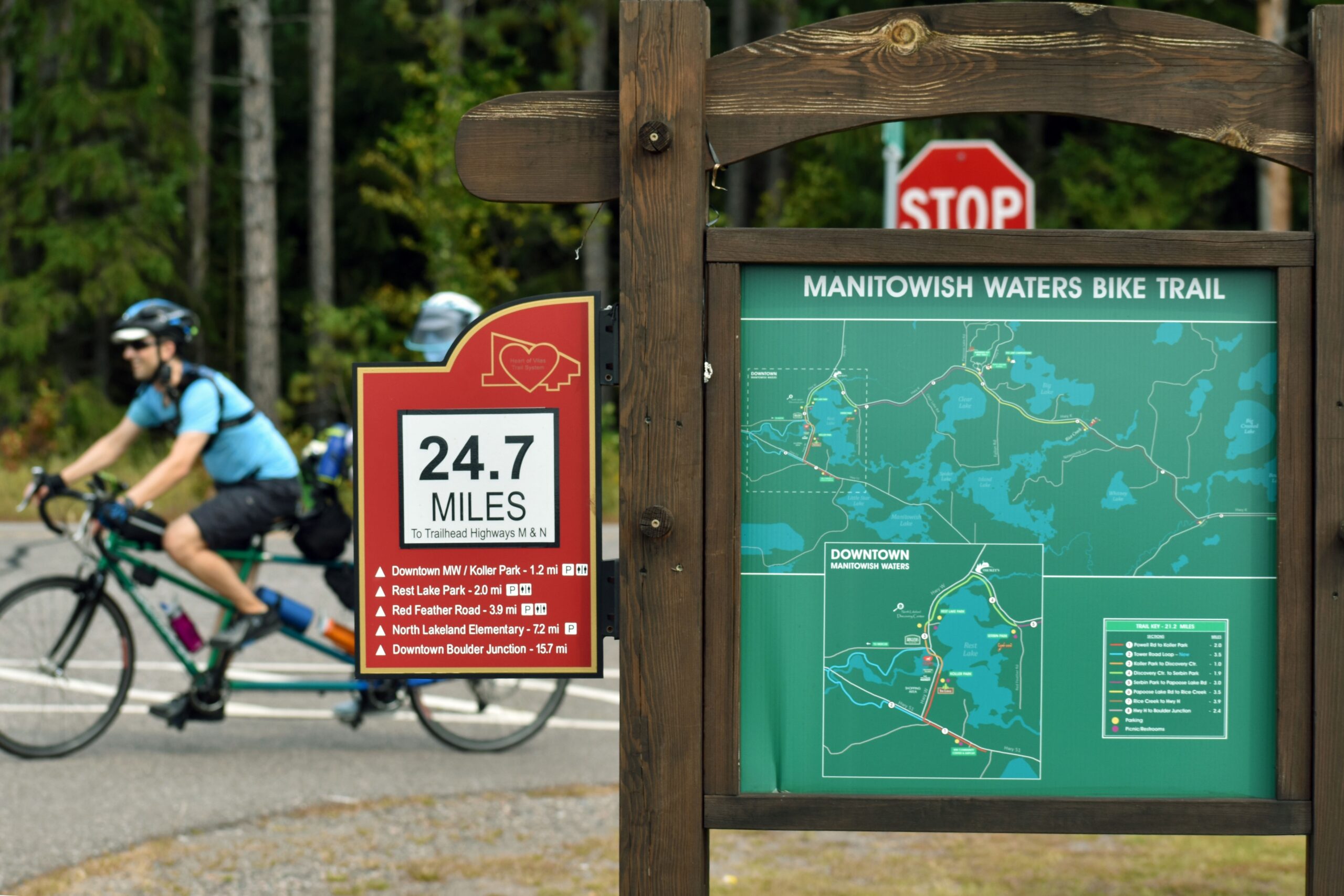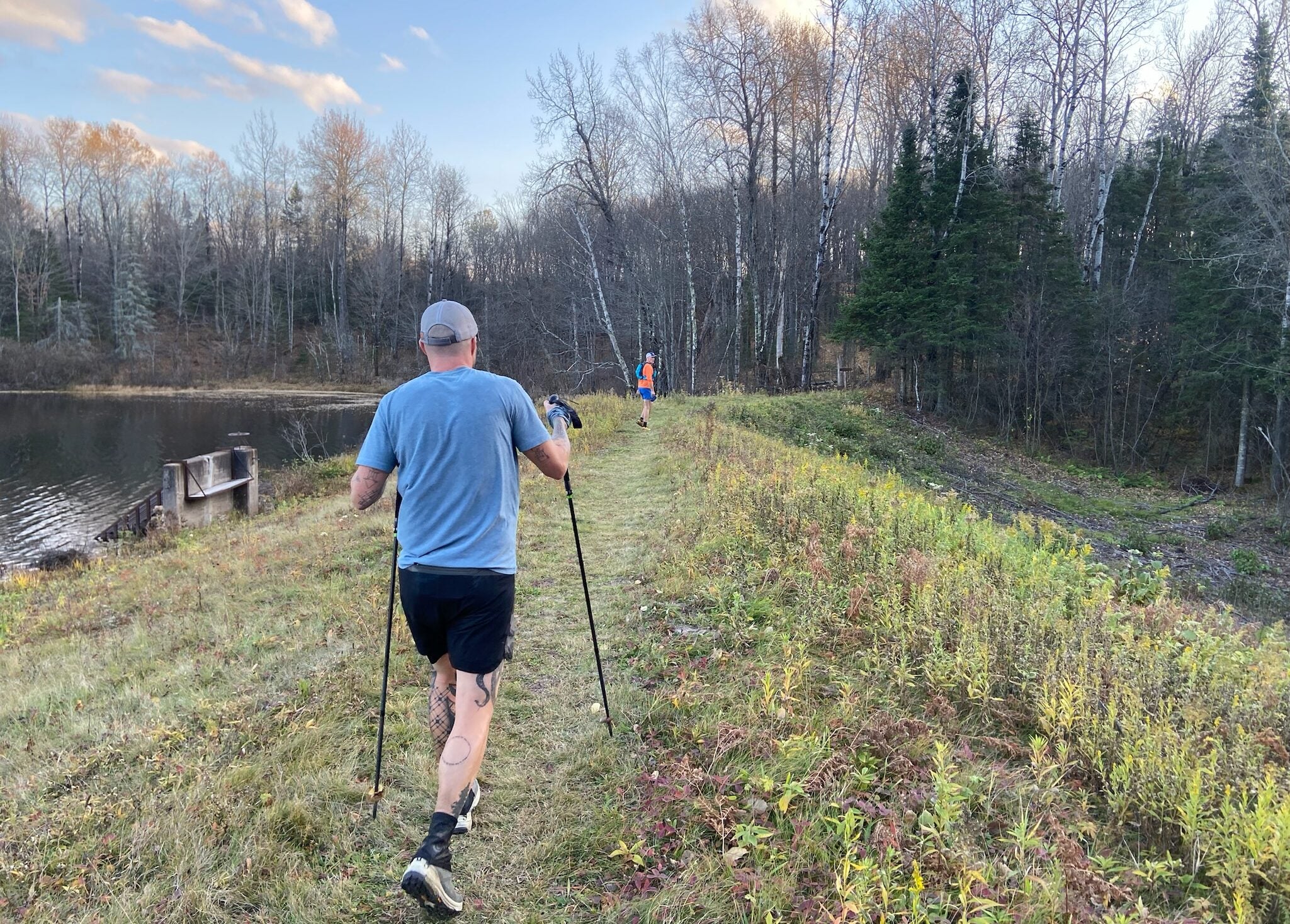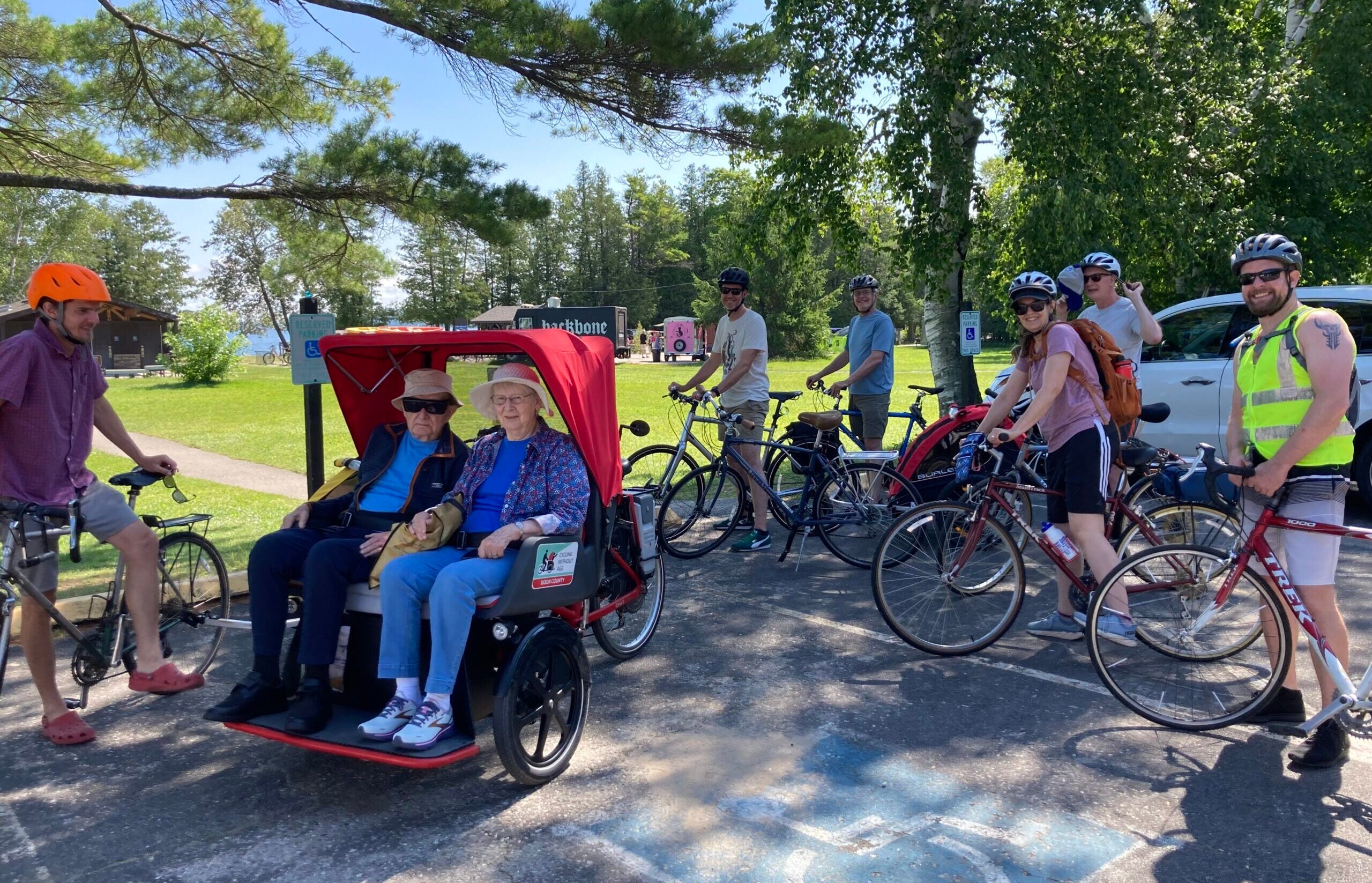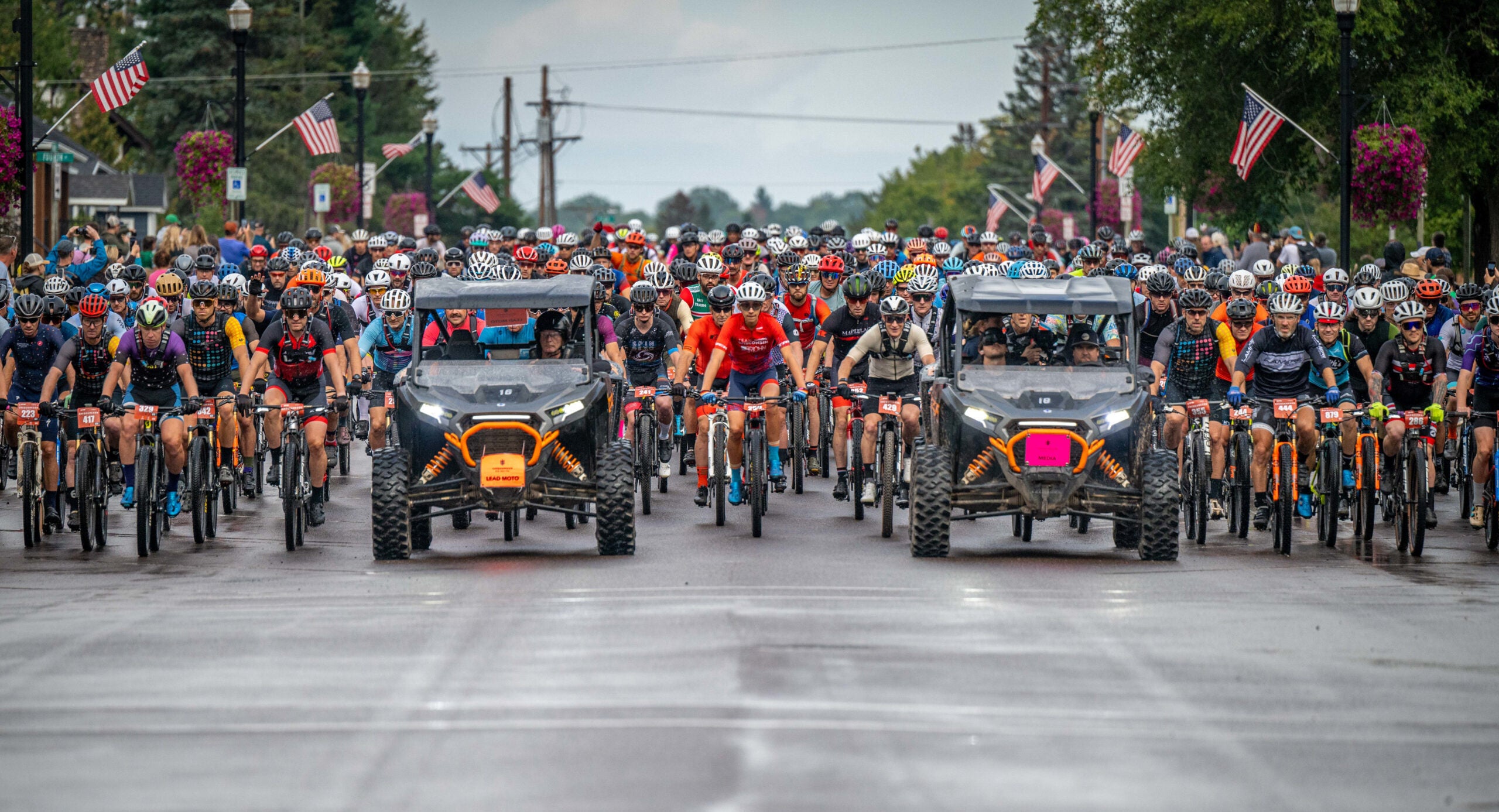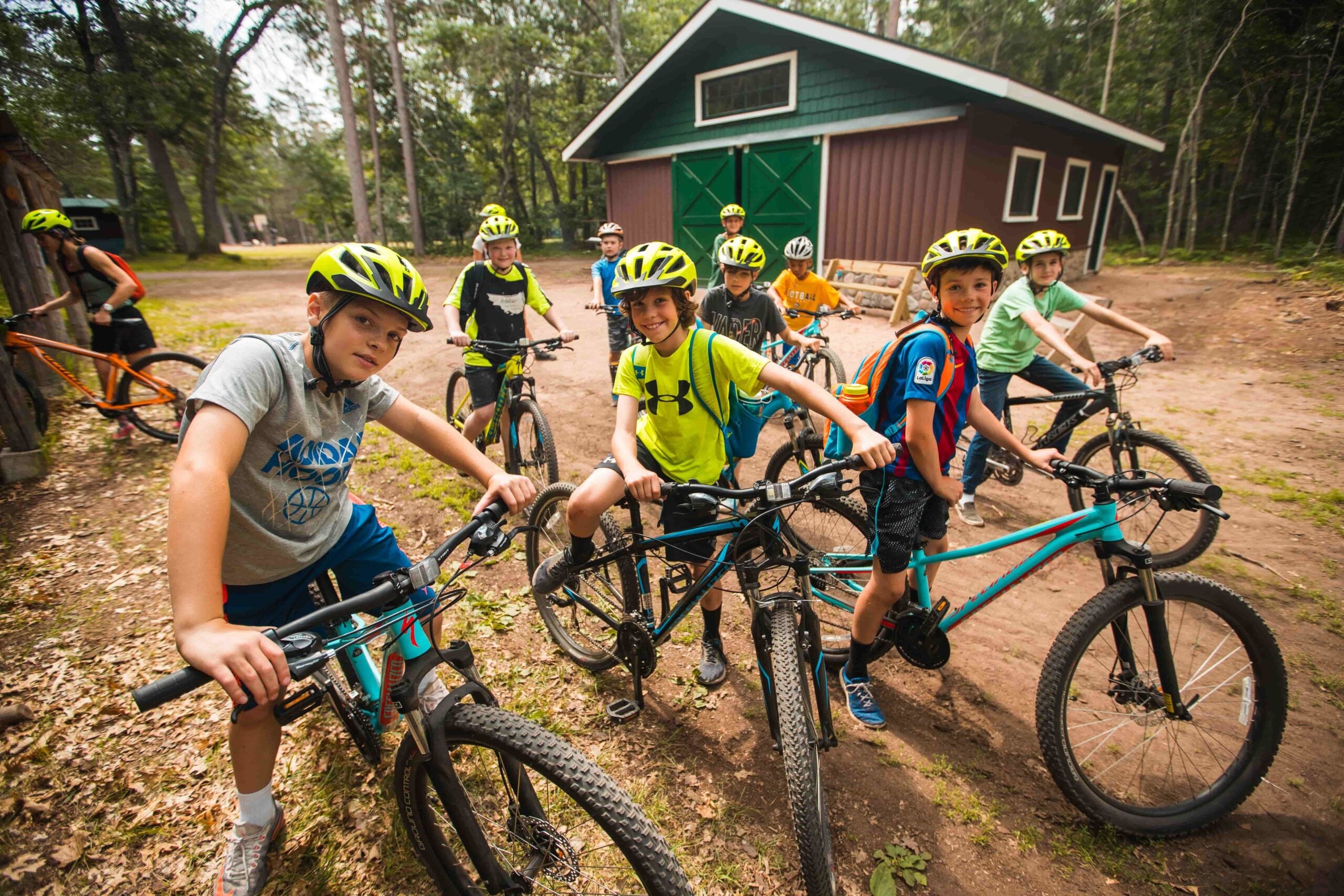The Wisconsin Bike Fed’s annual Wisconsin Bike Week is now in full swing, and this year, they mean business.
Under this year’s theme, “Bikes Mean Business,” special events running June 1-9 highlight the economic impacts of cycling throughout the state.
The group has dozens of events on its calendar to promote biking in communities of all sizes, like a Kids Bicycle Rodeo in Sheboygan and a backwoods mountain bike race in Boulder Junction, both set for Saturday. The Bike Fed has also encouraged local businesses and organizations to set up commuter stations to connect with cyclists in their communities.
News with a little more humanity
WPR’s “Wisconsin Today” newsletter keeps you connected to the state you love without feeling overwhelmed. No paywall. No agenda. No corporate filter.
Wisconsin Bike Fed Events Manager Heather Rainer joined WPR’s “Wisconsin Today” to talk about the economic ripple effects of cycling throughout the state.
The following has been edited for brevity and clarity.
Kate Archer Kent: This year’s Bike Week theme is on the economics of cycling. What are the different ways that cyclists support our Wisconsin economy?
Heather Rainer: We are trying to highlight that “Bikes Mean Business” by showing that people who ride their bikes to a business are going to bring more economic activity into the community.
Say you’re going to drive from point A to point B in a car. You’re probably just going to get where you’re going. But if you’re riding a bike, you’re going to notice different places along the way. That’s probably going to encourage you to stop in and spend your dollars. So we’re trying to promote that getting places by bike could have more of an economic value to the community.
KK: Along the way, cyclists will be passing bike-friendly businesses. The League of American Bicyclists says that our state has nearly 50 of them. What does it mean to be a bike-friendly business?
HR: There’s something called Bicycle Benefits, and it’s an organization that you can join. What you’d be doing is providing cyclists a discount or something for coming to your establishment.
A bike-friendly business is one that encourages people to ride their bikes there. They’re going to provide bike racks for parking, and then they’re going to offer some kind of a discount for visiting them by bike.
KK: Bicycle tourism is definitely an opportunity for economic development. What kinds of bike related-events and activities draw tourists to Wisconsin?
HR: So the Wisconsin Bike Fed’s biggest fundraiser of the year is called “Ride Across Wisconsin,” otherwise known as RAW. We start in La Crosse in August. It’s a two-day event and it ends in Milwaukee. All along that route, we’re bringing hopefully 1,000 people to those different towns where there’s going to be different support rest stops.
And then there’s the WORS series, which is the Wisconsin Off-Road Series, that’s put on by Trek. That travels to nine different towns throughout the state. So between a couple hundred and a thousand people will travel to each of those, some coming from other states. People are coming to these towns, they’re spending money, they’re getting hotels, they’re eating out.
There’s another one, the Chequamegon Mountain Bike Festival. It’s one of the oldest in the country. It started in 1983 with 27 riders. It’s now up to 3,000, and it brings people from all around the country. So all of these different events that are popping up around the state are drawing more and more people to them, and that’s bringing tourists dollars to these towns (and) into our state.
KK: When I was biking home from work earlier this week, I noticed a pop-up bike tune-up and cleanup station. How do those free tune-up events affect the Wisconsin cycling economy?
HR: That’s all happening because of Bike Week. We’ve encouraged businesses to have those pop-up commuter stations. So usually it’s a business or an organization that’s putting those on. By giving back to the community, they’re hoping to get their name out there so people will stop at their business and know that they’re a bike-friendly organization.
Wisconsin Public Radio, © Copyright 2025, Board of Regents of the University of Wisconsin System and Wisconsin Educational Communications Board.

